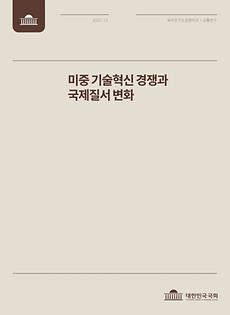
The history of past hegemonic shifts demonstrates that technological innovation plays a role in shifting global leadership and altering the international order. In some instances, the decline of a hegemon has been attributed to its complacency regarding existing technological advantages, while in others, aggressive investment in new technological innovations and industrialization has facilitated its ascent to hegemony. The United States, having led the world in technological innovation and industrialization during the second and third industrial revolutions, has maintained its hegemonic status for over a century, despite the recurrent emergence of "hegemonic crisis" discourse. Today, the rise of China and the integration of emerging technologies such as AI are once again prompting discussions about a potential hegemonic crisis and hegemonic shift. This study delves into and projects the U.S.-China hegemonic competition through the lens of technological innovation.
Drawing on Lewis Mumford's analysis of technological civilizations, this study categorizes the current phase of technological civilization as one marked by the coexistence of new technologies (digital technologies) and new ecological civilization technologies (green technologies). Reflecting this classification, the world today advocates for the "Twin Transition" as a core national strategy, aiming to advance digital transformation and green transformation simultaneously. With China's rise and changes in the global order, U.S.-China competition is intensifying around green and digital technologies, which are fundamental to today's technological civilization and national innovation strategies. This study explores the trends and future of the U.S.-China rivalry in green and digital technologies, focusing on patent data. It assesses who is leading the innovation race in green and digital technologies based on the number of patent applications, and examines and forecasts the formation of blocs within the global network of these technologies through patent family analysis method.
The history of hegemony illustrates that resting on the laurels of past scientific and technological advancements can precipitate decline. Amidst the history of technological innovation, hegemonic rise and fall, the Republic of Korea must reflect on the current challenges and crises it faces. There is an imperative for Korea to contemplate its future competitiveness in technological domains that have historically underpinned its growth. Moreover, it must consider the potential risks of losing its innovative edge and experiencing a decline in status if it becomes complacent with those very technologies that have previously driven prosperity, especially in an era of disruptive technological innovation. To achieve a position of unparalleled superiority across diverse sectors, Korea must commit to long-term and audacious investments in leading-edge technologies.